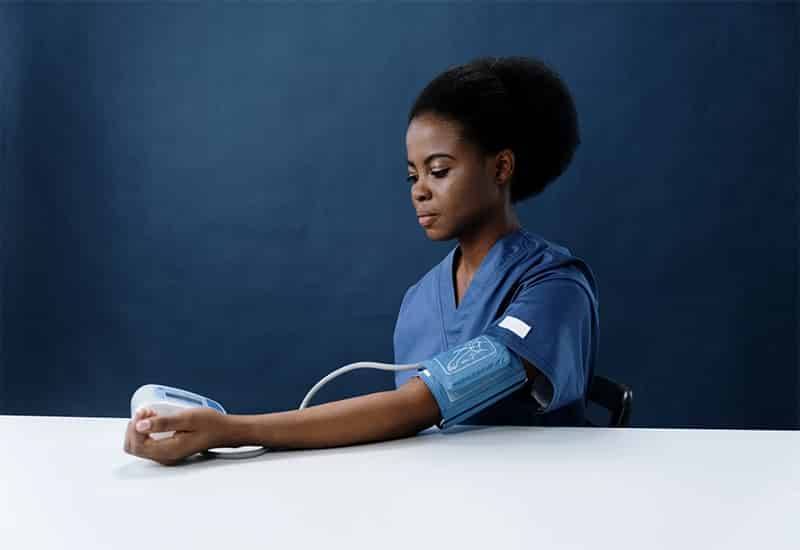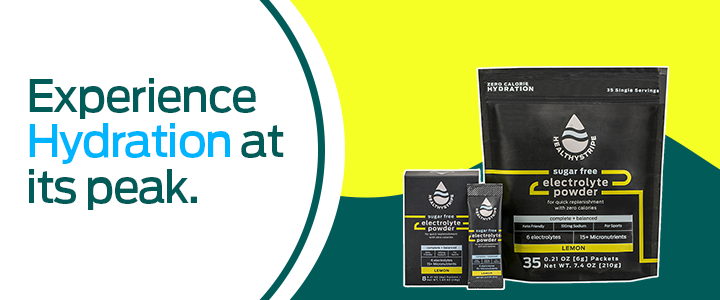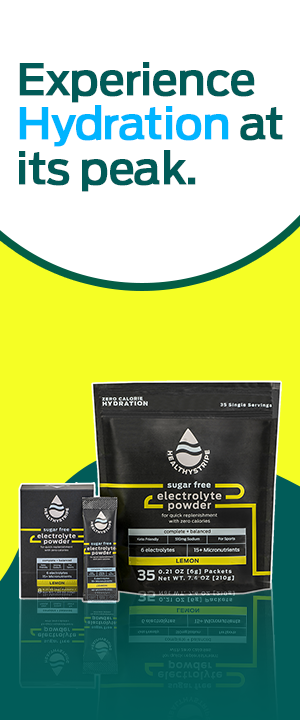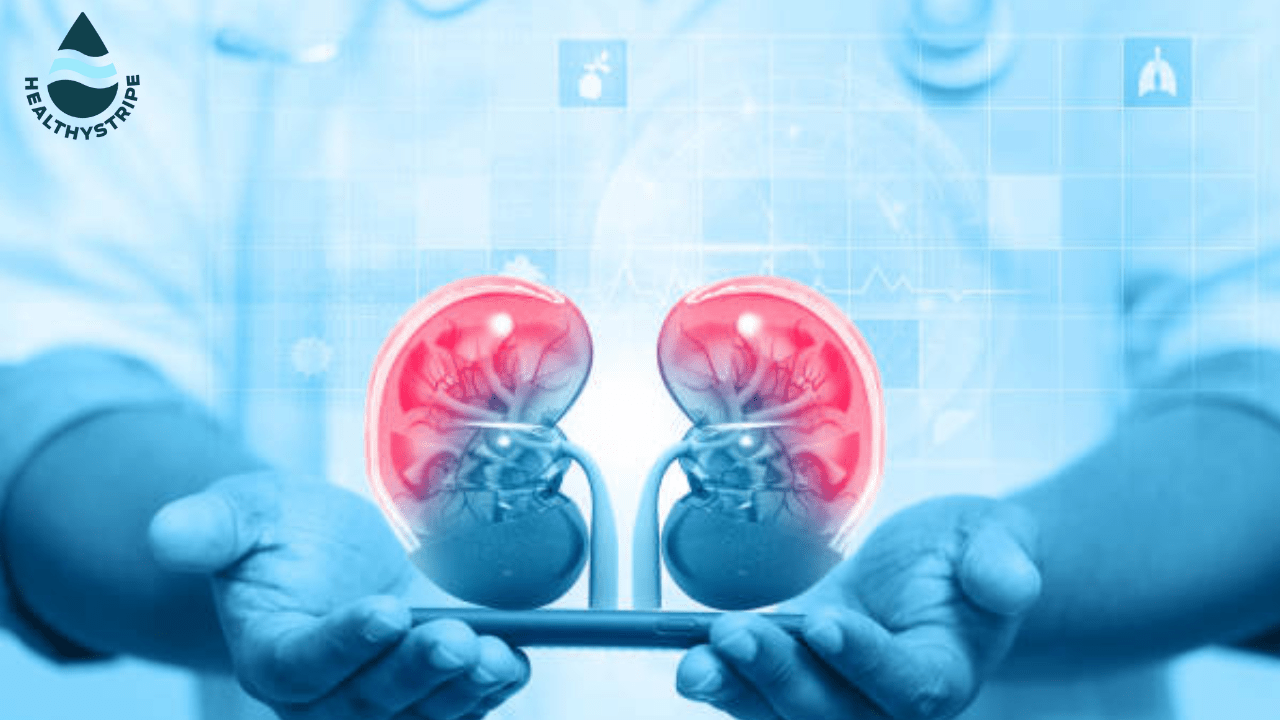Can Dehydration Cause High Blood Pressure?
- Can Dehydration Cause High Blood Pressure?
- The Link Between Dehydration And High Blood Pressure
- Signs And Symptoms Of Dehydration And High Blood Pressure
- Can Dehydration Cause High Blood Pressure Really?
- Treatment Of High Blood Pressure
- Prevention Of Dehydration And High Blood Pressure
- Bottom Line
- FAQs
- Can Dehydration Cause High Blood Pressure?
- The Link Between Dehydration And High Blood Pressure
- Signs And Symptoms Of Dehydration And High Blood Pressure
- Can Dehydration Cause High Blood Pressure Really?
- Treatment Of High Blood Pressure
- Prevention Of Dehydration And High Blood Pressure
- Bottom Line
- FAQs

Beyond merely making you feel bad, being dehydrated may have a variety of negative side consequences.
Yet, does dehydration cause high blood pressure?
On the other hand, is there evidence of does high blood pressure cause dehydration?
Your ability to predict how your body will react to dehydration might help you avoid potentially harmful changes in your blood pressure.
Now, let’s talk about the relationship between dehydration and blood pressure.
The Link between Dehydration and High Blood Pressure
Your blood pressure may increase or decrease due to dehydration, resulting in either high blood pressure (hypertension) or low blood pressure (Hypotension). Are you wondering does dehydration cause high or low blood pressure?
Decreased Blood Pressure
Your blood volume may drop as an effect of dehydration. The quantity of fluid in your blood vessels is known as blood volume. The ability of your blood to reach all the organs and tissues in your body makes maintaining a normal blood volume crucial. Yet, a decreased blood volume might result in a decline in blood pressure.
Your volume of blood and blood pressure may become dangerously low if you are dehydrated. Your tissues and organs may be unable to receive the nutrients and oxygen they require to be healthy as a consequence.
Increased Blood Pressure
Your body produces more of a substance called vasopressin when it is dehydrated. Vasopressin aids in kidney water retention, which can reduce water loss during the urine. It also causes your blood vessels to tighten, raising your blood pressure in the process. As this condition continues, high blood pressure may be set up.
Signs and Symptoms of Dehydration and High Blood Pressure
A medical condition called dehydration happens when your body doesn’t have enough water. It can be caused by a lack of fluid intake from food and drink as well as a quicker rate of physiological fluid loss than replacement, such as through excretion and sweating.
Symptoms of Dehydration
You may avoid dehydration turning into an emergency scenario by being aware of the warning signals.
Among the most typical signs of dehydration are:
- Feeling thirsty
- Mouth ache
- Darker-coloured and less often produced urine
- Experiencing fainting or dizziness
- Fatigue
- Mental haze or uncertainty
Vision blurring, nausea, cold and damp skin, shallow breathing, and a weak yet quick pulse are all symptoms of extreme dehydration.
It is always recommended to get medical help if you have severe dehydration symptoms like these or are worried about dangerously low blood pressure levels.
But, now the question arises does being dehydrated cause high blood pressure?
If yes, then are their symptoms similar?
Signs and Symptoms of High Blood Pressure
One probable factor in high blood pressure is dehydration. Some medical disorders or certain lifestyle choices might also contribute to high blood pressure.
Nevertheless, some persons with high blood pressure may also have headaches, breathing difficulties, or bleeding from the nose.
Often, at routine appointments like yearly physicals or well-check visits, doctors will take your blood pressure. You can lower your risk of heart attack, strokes, heart failure, and dementia by managing your blood pressure.
Can Dehydration Cause High Blood Pressure Really?
For many of us, the confusion lies in whether dehydration causes high or low blood pressure. Well, dehydration can cause both a drop in blood pressure and a relative rise. The research, however, on the high blood pressure caused due to dehydration is limited. So, how dehydration affect blood pressure and pulse?
It is observed that high blood pressure due to dehydration is caused by the hormone Vasopressin. It is released when the body has a high amount of sodium levels in the blood. In the condition of dehydration, the kidneys try to reabsorb water and due to this, the urine output decreases significantly. High concentrations of vasopressin can cause blood vessels to constrict which can ultimately lead to an increase in blood pressure (as mentioned in Kumar & Clark clinical medicine).
A very important fact to be noted here is that dehydration can cause a rise in blood pressure during pregnancy to a large extent. It can lead to anxiety and depression affecting both mother and child.
This is why it is advised that during pregnancy, adequate hydration needs to be taken care of in order to prevent the child from any birth deficits.
Dehydration, Heart, and High blood pressure: Trio explained
The heart plays a central role in pumping and transferring blood throughout the body. Just like other systems, the cardiovascular system carries out the majority of its functions through the water.
Dehydration or lack of adequate fluids in the body straight away hampers the blood flow. The blood volume lowers.
Accordingly, the heart has to work more in order to pump blood thus increasing the heart rate. The higher sodium content in a dehydrated bloodstream causes capillaries to close and blood pressure to increase.
Dehydration and Low blood pressure: What’s the catch?
Just like high blood pressure, dehydration can also cause low blood pressure. It is however not a very potential marker but if not paid attention to, can lead to detrimental outcomes.
Dehydration can cause low blood pressure due to a decrease in blood volume (2). This can ultimately cause cell starvation (due to lack of nutrients and oxygen) resulting in fatigue and weakness. An adequate blood flow is essential to be able to reach all the body tissues.
Tried of being Dehydrated, get more tips on how you can stay hydrated & healthy. Join Us Now!
Treatment of High Blood Pressure
It is not really a very big deal to control your blood pressure if you know the smart steps and make your efforts.
Stay Hydrated as Much as You Can
It is suggested that drinking at least 8 glasses of water every day to keep yourself hydrated is the ideal move to control your blood pressure.
You can switch to water-infused fruits, energy drinks, sparkling water, decaffeinated beverages, smoothies etc. to maintain a normal fluid and electrolyte balance.
Heart-healthy Diet
One of the most important changes you need to bring on is in your diet. Opt for a heart-healthy diet that is low in sugars and unhealthy fats, high in fibre, and a balance of all nutrients incorporated. Some good heart-healthy foods are-
Physical Activity
With high blood pressure comes the need to keep your body active and working. Include at least 30 minutes of daily early morning physical exercise in your routine.
Additionally, make it a habit to take brisk walks in between your work to recharge yourself and maintain your body metabolism.
Healthy Body Weight
Maintain optimum body weight. Obesity is one of the major causes of high blood pressure apart from dehydration.
As discussed, a healthy weight can be maintained by opting for the right kind of diet and less binging on junk food. If you are into smoking or drinking, it is advised to quit them.
Regular Checkups
The Mayo Clinic suggests that you get a routine blood pressure check from time to time. at least every two years starting at age 18.
A blood pressure reading every year is very necessary if you are having constant high blood pressure. It becomes all the more important if you are aged over 40.
Clinical Treatments
In severe cases like during a hypertensive crisis, rush to your doctor immediately. Upon a medical diagnosis, your doctor might prescribe you oral medications
Prevention of Dehydration and High Blood Pressure
Individual differences in daily fluid requirements result from factors such as age, sex, pre-existing medical problems, drugs used, degree of exercise, and if you are pregnant or nursing.
The Mayo Clinic and the U.S. National Academies of Sciences, Engineering, and Medicine recommend as a general guideline:
- For males, 15.5 cups (3.7 litres) of fluids are recommended daily.
- Women should drink around 11.5 cups (2.7 litres) of liquids each day.
Water makes up over 60% of the adult human body. Water is essential for your body to function properly. For instance, it aids in waste removal and body temperature regulation.
When your body does not have enough fluids, dehydration develops. If you don’t drink enough water even after a period of intense perspiration, dehydration may happen. It can also occur if you are unwell and unable to maintain fluid balance in your body as a result of persistent vomiting and/or diarrhoea.
Foods and beverages that are hydrating
Regular water is the finest fluid for hydration.
There are several methods to improve the flavour of plain water and alternate it with other hydrating meals and beverages, though, if you discover that you’re becoming tired of doing so. To organically flavour plain water, add fresh berries, lemon or lime slices, or thinly sliced cucumber, watermelon, salad greens, apples, and citrus fruits are examples of fresh produce.
Bottom Line
Dehydration can affect blood pressure in unexpected ways.
A decrease in blood volume might cause shock and a possible harmful reduction in blood pressure.
Dehydration and high blood pressure have been connected in the past. To properly comprehend the link, more study is required.
Dehydration may be avoided by drinking enough water and also by adding electrolytes to it. This is crucial whether you’re unwell, in a heated setting, or engaged in strenuous activity.
Dehydration and High Blood Pressure Related FAQs
Is dehydration a common cause of high blood pressure?
Chronic dehydration is a major cause of high blood pressure. The brain tells the pituitary gland to release the chemical vasopressin, which causes the blood vessels to tighten when the body’s cells are dehydrated. Hypertension results from this rising blood pressure.
What is the difference between dehydration and overhydration?
Dehydration is the lack of water or fluids in your body. This can be balanced by drinking enough water that suits your bodily needs. While, when people consume much more water than their bodies require, overhydration can occur.
How much water should I drink every day?
It is recommended for men to drink 15.5 cups (3 litres) of water and for women to 11.5 cups (2.7 litres) per day. Though this recommendation differs from person to person as their height weight, age, etc also varies.
Can dehydration cause low blood pressure?
A lack of fluids in your body is called dehydration. When there is not enough water, the volume of blood in the body decreases. This may lower blood pressure.
Can high blood pressure be caused by drinking too much water?
Water consumption is unlikely to increase blood pressure. A healthy body swiftly controls its electrolytes and fluid balance. There is no evidence found stating that drinking too much water leads to high blood pressure.









